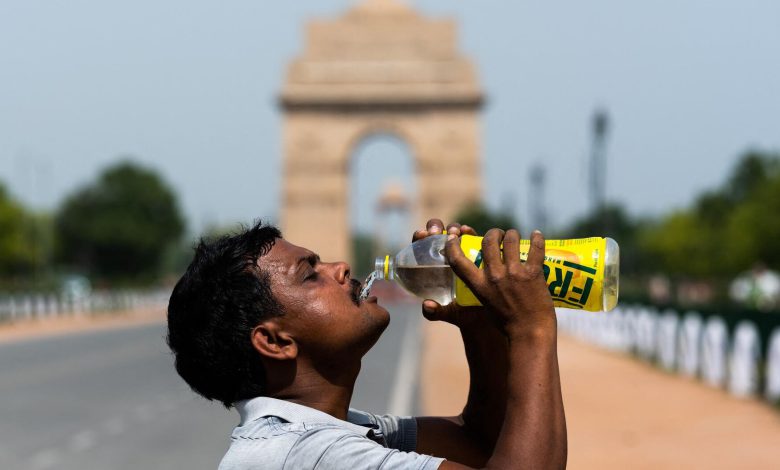IMD Issues Red Alert For Delhi, Rajasthan, Haryana And Punjab Amid Severe Heatwave

New Delhi: Residents of Delhi and several northwestern states should prepare for intense heat, as the India Meteorological Department (IMD) has issued a red alert warning for extreme heatwave conditions. The alert applies to Delhi, Rajasthan, Haryana, Punjab, and parts of Madhya Pradesh for June 11 and 12, with temperatures expected to soar above 45°C.
The IMD has upgraded its earlier orange alert for Delhi-NCR to a red alert, indicating a higher level of risk and urging people to take necessary precautions. The extreme heat is likely to persist through Wednesday and Thursday, with possible relief expected after June 12.
“Delhi is likely to see temperatures ranging between 44°C and 46°C over the next two days,” said Dr. Naresh Kumar, senior scientist at IMD. “Red alert is in place for June 11 and 12. We may see some relief by the night of June 13, with light rainfall and thunderstorms expected due to a western disturbance.”
According to the IMD’s latest update, severe heatwave conditions have been recorded in parts of Jammu & Kashmir, Punjab, western Rajasthan, and western Madhya Pradesh. Heatwave conditions are also affecting Himachal Pradesh, Haryana, Chandigarh, Uttar Pradesh, eastern Rajasthan, and eastern Madhya Pradesh.
The IMD bulletin, issued at 2 PM on Tuesday, highlights that the oppressive conditions are likely to continue across Delhi-NCR and neighboring states, making it critical for people, especially vulnerable groups like children, the elderly, and those with health conditions, to stay hydrated and avoid outdoor activities during peak hours.
The red alert is expected to be downgraded to an orange alert on June 13, as forecasts suggest the potential for isolated showers in the Delhi region, offering temporary respite. However, the arrival of the monsoon is still some time away for northwestern India, and the heat is expected to persist until then.
Authorities have urged residents to take the warning seriously and follow heatwave safety guidelines to prevent heat-related illnesses.



